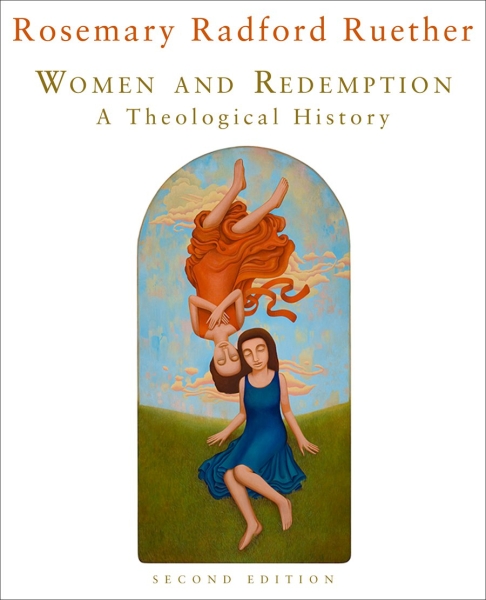
"So, Clint, How is it going up there?"
This is a question I hear a lot. And that is to be expected. I am fairly new as the pastor of United Churches of Hot Springs, SD. Many of you who are reading this or who know me do not have a lot of experience with multi-denominational churches. Others of you just want to know what the new place is like compared to where we have been. So, here are a few highlights after the first few months.
Preaching and Teaching
I have never served at a church anywhere where I felt my preaching and teaching gifts are as encouraged or as appreciated as they are here. I realize I am in the honeymoon phase, so this may change. However, even in my "honeymoon" phase, I did not feel like I was connecting with my preaching and teaching in other places like I am here.
This is true for a number of reasons:
- As a whole, this congregation is a congregation is more eager and hungry to learn than many I have served.
- The congregations I have served previously have made me a better teacher and preacher
- The Holy Spirit is blessing that part of my ministry here
- My preaching compares favorably to the recent pastor, especially in his last few years heading toward retirement. That doesn't mean he wasn't a good pastor. He left big shoes to fill. But, preaching was not believed to be his strong suit.
Often, I have people asking me questions here about something I am teaching, or they quote my message back to me, or I see them taking notes all over their bullitens. This is all very encouraging, and I hope it continues.
Forms of Worship
The early service has a more liturgical feel. Our late service is fully contemporary.
I have been surprised on how easily I have adapted and feel comfortable in a more formal worship setting. This is in part because the congregation just comes to worship with a very positive vibe, something that I did not sense in my Colorado churches. But I have also adapted well, and enjoyed structuring a service with readings, and a more traditional "flow".
Another thing that has been well recieved in the traditional service is choosing hymns everyone knows. They enjoy singing those songs, which makes them more receptive to the message, etc etc.
Also, I cannot emphasize enough how nice it is to have a well-led choir.
My biggest challenge in worship has been leading the communion part of the service once a month. It has been a challenge to mesh what I am comfortable with, what feels like it flows, and what is logistically possible with what the church is ok with. I am still learning on this front, and probably this would have been easier if I had not arrived in January, and jumped right into everything leading up to Easter.
I still miss the blended styles of both Fowler and Colorado Springs. I miss the older praise songs (from the 80s and 90s) that we got to sing in Fowler. Our praise service is very contemporary, and our traditional is very traditional.
Administration
I have some administrative skills, but it is definitely not my gift. My predecessor was gifted with administrative abilities. Thus, the position currently is organized, in part, around his administrative abilities.
So far, I feel like much of the church feels "out of control" for me. Things happen before I can catch up to them, and more happens in a given week that I can keep up with and have a grasp on. There is not as much time to ponder and consider before I have to make a decision, and I don't have as much of a history or a knowlege of the church's history in order to alwasy make the right plans and to choose the right thing to do.
Relationships
In addition to being a stellar pastor for 8 years here, the previous pastor had very strong "political" and relational gifts. Many people were attached to him and his wife, and while they are careful not to compare us to the previous ministry family, it is very obvious they miss having them as their pastor and pastor's wife.
The previous pastor was much more "sanguine" in his personality style, and I am much more of a "melancholy" in personality. Many people talk about how friendly, positive, and easy going he was. He never let his feathers get ruffled publically. It will be very hard for a guy like me, who is more passionate, direct, and introverted to get where he is in relationship to this congregation.
Family
Karis is adaptable to about any situation. Generally though, I think she was more content at daycare with Annette in Fowler, and we felt better about Annette's attention toward Karis.
Karis seems to like our home here a lot more, she enjoys a lot of the church people, and I think on the whole she knows she is treasured by the people at United Churches.
Jennifer feels much more comfortable in this community than in Fowler, and possibly than in Colorado Springs as well. Her job has had its ups and downs, but it is easy to leave when she gets home, and then leave the job at the job. Of course, she both lives in this community, and works here, which helps her feel more at home here. She doesnt have to spend another 8 hours driving each week back and forth to work. She can come home for lunch. These things make my wife happy.
In general, I think Jennifer enjoys worship here as well. Especially the early worship service because she can put KK in the nursery and actually hear a message and participate in worship.
As far as the church goes, I think Jennifer feels more accepted as a person here than in Fowler. She often felt dismissed and judged in Fowler, and did not think she would be accepted by many people in the church if they knew who she was. This certainly was not true of her relationships with everyone there, but it was true of many. Although many people love Karis in Fowler, others clearly saw her as a nuisance and made no secret about it. When Fowler stopped funding Karis' health care without notice, several people said, "We did not tell them to start having children, I don't know why we should..." as a reason to cut this benefit. Jennifer overheard it. She never forgot it. And from that point on, she was willing and eager to leave.
Here Jennifer feels like she could make a home in Hot Springs. She feels like there are possibilities for supportive friendships. She feels like she belongs. And she feels like she matters to many people at church, and that they value her and Karis. This all makes me very happy.
"The Fit"
I am still trying to figure out if I really "fit" here as a pastor. I sometimes wonder I am better suited for a more earthy congregation like I had in Fowler. This is no FBC Colorado Springs, but it is definitely more fancy in a lot of ways that Fowler. I don't necessarily do fancy well.
Managing staff is a little more challenging than I thought. I question myself a lot, and I am trying to figure out what standards I have are appropriate and what is not, and what authority I actually have in actually leading staff.
There is definitely a lot of committee and policy work. I am a lot less formal in that sense than some folks want to be.
The Parsonage
On the whole, the parsonage in Hot Springs is larger, better maintained, and more family friendly. Jennifer likes the kitchen a lot. We both like having most of the bedrooms upstairs with the living space. I thought the Fowler parsonage was a little cozier for me to live in, but I have adapted.
The outside of the parsonage has been a frustration. The church really did not do as good of a job as they should have in fencing the yard, which has rendered the yard nearly useless for Jake.
Also, the residence is in more of a "public space". For a person like me who likes personal space and privacy, I feel like I live in a fishbowl. I don't like that a commonly used trail through town ends in our front yard. I don't like that if I open the windows, people can hear us talking down at the park, and that if we open our windows, our home is much more visible to the community.
Busyness
There is rarely a day in which the large parking lot in front of the church is not filled, and somehting is not going on at church. There is always some activity, some community meeting, or something else happening in our front yard. For the most part this is a good thing.
There are a lot more meetings than in Fowler, which makes it harder for me to take a day off or get away from it all. I have had a couple of times where I have not gotten a day off for nearly three weeks. I think this will slow down as I figure out the church enough to manage my priorities.
The Place
We love the Black Hills as a place to be. There is so much to do. It is pretty. There is so much to learn.
Many people live here because they have chosen to be in "this place". They are positive about being here. It makes it a nice place to be.
We like to spend time exploring the Hills when we have some down time. We have spent three days in the area driving around to different spots. We have still not felt like we have seen everything, or really done much more than "road trips". We are eager to do the Badlands and Wall Drug, Devil's Tower, and spend time at some of the lakes. I am still wanting to see the Reservation land. And none of the tourist traps have opened up yet. But so far, it is a wonderful part of God's creation to live in.
Well, I hope that summarizes it. This post is what it is. At times overly-honest and direct. But a true appraisal of the situation from where we see things at now.


 I visit with her for a little bit. One time she tells me she is going to turn 66. A few minutes later she says she is going to turn 77. Since she is in her 90s, I am happy that she believes she is still so young and spry.
I visit with her for a little bit. One time she tells me she is going to turn 66. A few minutes later she says she is going to turn 77. Since she is in her 90s, I am happy that she believes she is still so young and spry.












